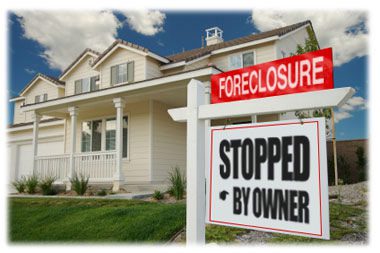In this article I will explain how you can stop foreclosure, keep your home, and improve your credit in doing so.
How to Stop Foreclosure
Since the banker bailout and the downturn in the economy, millions of Americans are faced with the unbearable news of missing mortgage payments or suffering a foreclosure. Often a family gets behind on their Mortgage through events completely beyond their control.
It could be a temporary illness causing loss of work, even if they are back at work now they have fallen behind in mortgage payments. It could be high credit card debt with excessive interest siphoning off the much-needed money to make the last several payments, and it can even be a bank telling the homeowner they can help with a loan modification and that the homeowner should actually NOT make several months’ payments, only to be told by the bank that their loan modification was denied and they will foreclose.
Any one of these circumstances could leave the hapless homeowner in the same position- several or many months behind and at risk of losing their home.

Here is where the solution comes in. Since most people don’t have a rich uncle who will bail them out, and winning the lottery is unlikely, a most often-used solution under these circumstances to keep your home is to file a Chapter 13 Bankruptcy.
A Chapter 13 is a “regular wage earners debt repayment plan” bankruptcy. While they are detailed and somewhat more complex than a Chapter 7 Bankruptcy, a Chapter 13 Bankruptcy can save the family home. In a Chapter 13, the Debtor(s) and their attorney prepare a detailed budget of income and expenses.
If the family has two incomes, both are used in the calculations, even if only one person files. This works out fairly, as the entire expenses of the family, children included, are used in the expense list. Because this budget purposefully does NOT include the mortgage arrears (but will include future mortgage payments if keeping the home), and does not include the bills which are being discharged in the Bankruptcy, you almost certainly will have money left over when subtracting expenses from income.
The Bankruptcy Trustee calls this “disposable income”. I call it the “crumbs” which are left over. Don’t get me wrong. The crumbs can be somewhat sizable if you have a large income, and there is a specific form as part of the Bankruptcy wherein Congress tells us what THEY think our expenses should be, but generally the amount left over to make payments on your Chapter 13 repayment plan, the “crumbs”, are similar to Congress’ version and do not create a problem.
Now, how does all this help me to keep my home, which might be anywhere from 2 to 22 months (or more) behind in mortgage payments and a foreclosure threatened or even scheduled in a few days? Simple. We put all those delinquent payments in the Chapter 13 repayment plan and at the end of the Plan we will be current on our mortgage and at no risk of foreclosure provided we continue to make regular mortgage payments after we file the Bankruptcy.
Remember I said in our budget we include the future mortgage payments? Now you know why. You start making the ongoing payments each month after you file, and the arrears sort of “takes care of itself” through the crumbs payments to the Chapter 13 trustee. It is, actually, that simple. Also through the plan payments to the Trustee, your unsecured creditors such as credit cards, personal loans, medical bills, and the like, are all discharged and you no longer owe those debts.
Only a few types of debt are not discharged by a Chapter 13 Bankruptcy, such as child support, alimony, most student loans, some taxes, and certain homeowner’s dues, plus a rare few more. Essentially, at the end of your Plan payments you are debt free except for the mortgage, which is now current and is “good debt”, and car payments kept current – also good debt, and the like.
Now, your credit is improved substantially. No delinquent mortgage payments, no delinquent car payments, no (or limited) unsecured debt. This is the stuff good credit is made of.
Q: How does all this help me to keep my home?
A: Put all those delinquent payments in the Chapter 13 repayment plan.



